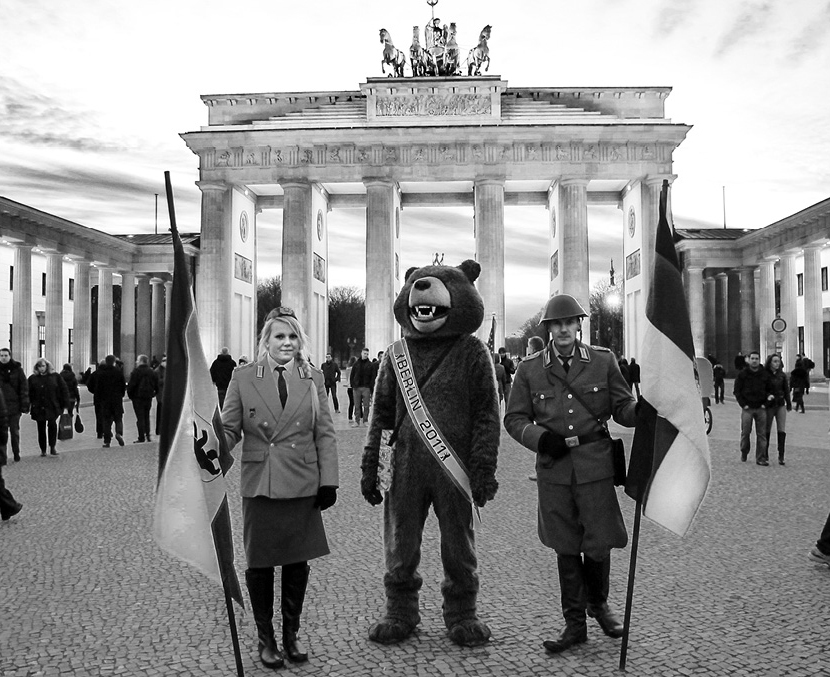Germany Introspection

The bear is the unofficial ambassador for Berlin, promoting peace, understanding, and tolerance, at the Brandenburg Gate, Berlin, Germany.
When walking down the streets of a German town or city, take a moment to look down. There’s a good chance that you will encounter a stolperstein (stumbling stone): a brass plaque where a cobblestone used to be, with a name, date of birth, and date and place of death. You might not realize it while rushing to your next destination, but you have just stepped on part of the world’s largest memorial to the Holocaust, one of sixty thousand plaques that the Berlin artist Gunter Demnig has cemented across Europe in a project to commemorate those murdered by the Nazis.
The stolpersteine are not universally popular, and in Munich there is a local authority ban on them. But, part of the national fabric as they have become, they represent something fundamental about modern Germany: the importance of introspection in coming to terms with the Nazi past and forging a new national identity in the traumatic aftermath of the war. The German word is Vergangenheitsbewältigung, which loosely translates as “overcoming the past,” and is very much focused on engaging with difficult issues rather than seeking to avoid them. Germany’s urge is not to excuse or turn away from what happened, but to expose it, question it, and ask what can be learned.
When you are constantly stepping on history, there is no escaping it. And Germany makes a virtue of looking back to absorb the horror and draw the lessons of the past. When I first visited the country and asked some German friends what we should see, the first places they took me to were the Holocaust memorials and museums. Visiting them, I was struck not just by the memory and horror that they evoke, but also by the thought of how many other people my friends had taken on this tour, and how many times they had themselves confronted this wound in the national memory.
Introspection applies not just to the Nazi past, but also to what followed, and the legacies of the police state that was East Germany for over four decades until 1989. The surveillance files of the Stasi secret police have become a central source for Germans who want to know how they and their families were spied on, with extensive efforts made by the government and historians to restore the records, which in many cases means piecing together torn or shredded papers that run into the millions. It is the only way people can come to terms not just with the reality of past events, but also with the questions that arise from them. Why did people collaborate with the Nazi slaughter and Stasi surveillance? Did they really have any choice? Could it have been different, and what can be done to stop it from ever happening again? Germany chooses to grapple with the difficult, in some ways impossible, dilemmas of the past, where other countries are too ready to wipe the record.
The emergence of a right-wing nationalist party, the AfD, has put the question of remembering Germany’s past back onto the frontline political agenda. In part, it represents a strain of opinion that demands Germany stop apologizing for its history. But even within a party that is beyond the pale for many Germans, such a view sparks controversy. One senior figure, Björn Höcke, was condemned by the AfD leadership for a speech that condemned Berlin’s Holocaust memorial as a “monument of shame in the middle of our national capital.” Protesters retaliated by installing a minor replica of the memorial outside Höcke’s house.
For Germany, the introspection over the past and how it should be remembered continues. That bravery in facing up to difficult history offers an important lesson, because there is nothing to be gained through trying to forget what happened. What is swept under the carpet never remains there forever. It is always better to reflect, confront, and be able to speak about the past, rather than acting like it never happened at all. That is how we remember, and use the lessons of history to shape a better future.